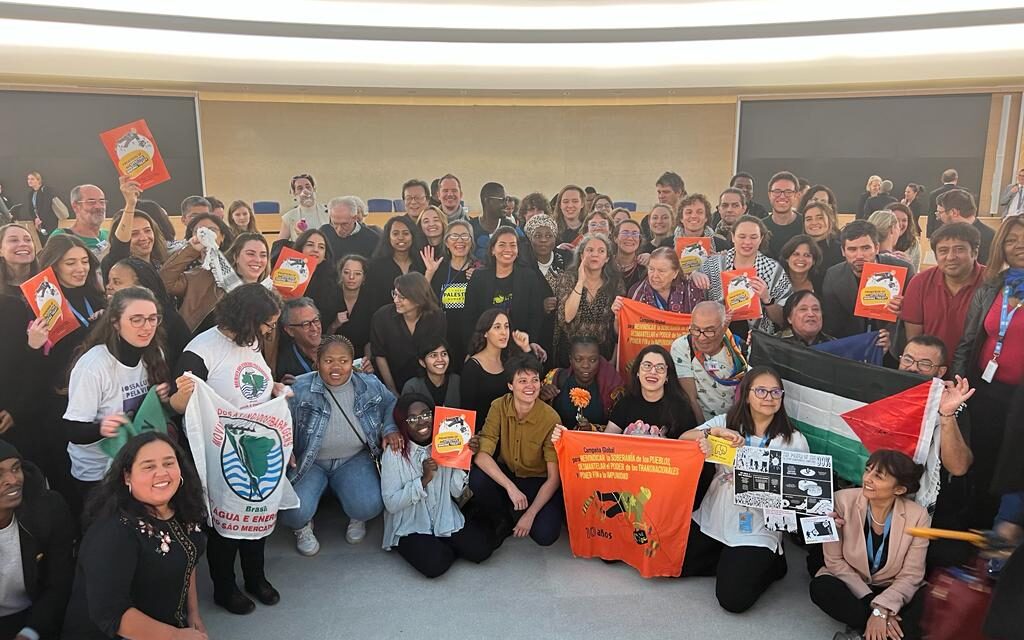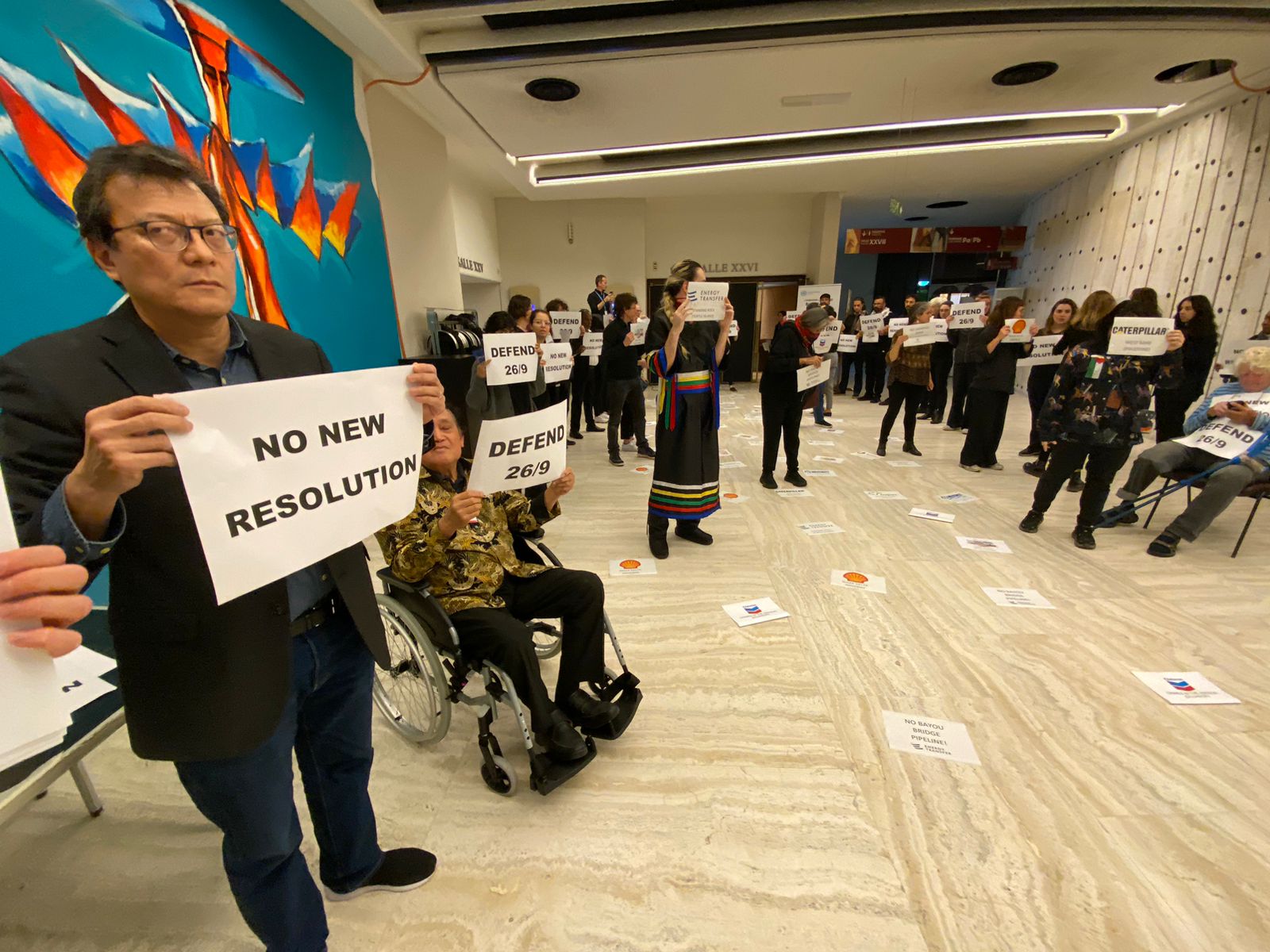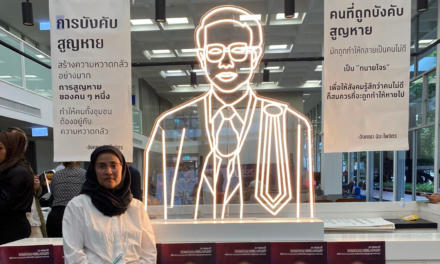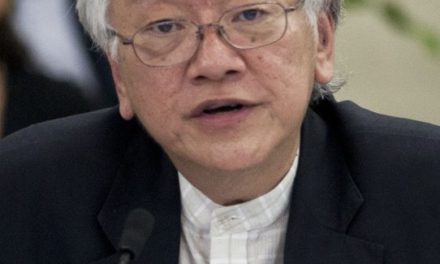Clean Version, Dirty Business
There was a long back and forth among States at the onset of the 9th session on the work programme proposed by the Chair-Rapporteur from Ecuador. The Chair was proposing that the negotiations proceed based on the clean version of his proposed 4th revised draft of the text.
Côte d’Ivoire speaking on behalf of the Africa Group raised their concerns over the process. While they remain actively committed to the discussions over the years and recalled the recommendations from previous session that the Chair facilitate regional consultations during the intersessional period to ensure as wide as possible inter-regional support, the Group “regrets that the last updated draft does not contain a contribution of the Africa Group and so the group cannot support the last update and draft program of work, and proposed to revert to last revised draft with inputs from 7th and 8th session” as the basis of the negotiations.
Aside from the lack of inputs from Africa, the 4th revised draft of the Chair broadened the scope of the treaty to “all business enterprises with no explicit mention of transnational corporations. The Africa Group sought clarification on the scope and asked the Chair to be faithful to the mandate which limits the scope to activities of transnational corporations and other business enterprises with transnational character, to highlight the gap in international law that needs to be overcome.
The position of the Africa Group garnered support from other developing country States from Columbia, Cuba, Egypt, and Pakistan among others.
The Global Campaign put forward a stronger rebuke “the updated draft treaty presented by the Chair in July 2023 breaches the mandate of Resolution 26/9. It is not a consolidation of previous negotiations, as it doesn’t reflect the immense majority of the proposals made by committed States, social movements and affected communities during the 7th and 8th session. From an instrument that should establish legal liability mechanisms to TNCs, it was transformed into a generic instrument for all enterprises based on weak due diligence provisions.”
The Campaign called on States to “restore the democracy of this process, its mandated scope, and the provisions protecting the communities affected by TNCs violations”.
After taking up the whole morning session, a compromise was reached to project on the screen both the 4th revised draft with tracked-changes (reflecting the proposals from States) as well as the Chair’s clean version to begin negotiations on the specific articles of the proposed treaty.
The tit for tat continued on the preamble, and articles 1 and 2. Discussions on the preambular section centered on references to international human rights treaties and declaration. Several states from the global south for example pushed specific references to declarations on human rights defenders, indigenous peoples and peasants. Critical exchanges also happened around the purpose of the treaty with some developing countries advancing the position that the treaty should “clarify and ensure respect and fulfillment of the human rights obligations, and not just responsibilities, of transnational corporations and other business enterprises.
Debate on the Scope
The scope of the treaty remains to be the most contentious issue. The debate on the scope revolves around the question on whether the future treaty should focus on TNCs and other business enterprises with transnational character, which is what is clearly stated in resolution 26/9. The US, EU, UK plus others like Mexico and Panama, backed by big business organizations like the International Organization of Employers, US business orgs want to dilute attention away from TNCs by pushing to broaden the scope to all business enterprises. The UK delegate even questioned the “disproportionate focus on TNCs” in the draft text.
Consensus on the scope is vital and will guide how negotiations are to move forward on other articles on prevention (Article 6), legal liability (Article 8) and jurisdiction (Article 9) among others.
Chicken and Rice
As the debate was heating up on the scope, the Panamanian delegation likened the discussions to having different recipes in trying to cook ‘chicken and rice’. Many States delegations made continued reference to chicken and rice in their succeeding interventions. The representative of big businesses tried to be funny by making the claim that corporations produce chicken and rice. CSOs didn’t let this pass and at the final CSO statement Natasha Dhanwani from Fian Indonesia speaking on behalf of the Youth Friends of the Chair, Feminists for a Binding Treaty, ESCR Net and Global Campaign, reminded everyone that “ the good, tasty and healthy rice and chicken are produced by the people and peasants, not by corporations.”
Attempted Coup of the Chair
The Chair made a proposal at the end of the 4th day for the working group to request a new resolution from the UNHRC supposedly to expedite the process, find new impetus and to guide discussion on the contentious issue of the scope. This move surprised delegates who expressed their concerns that a new proposal could undermine and effectively kill the process.
While repeatedly denying his intention to call for a new resolution after being questioned by several states, a draft report with recommendations and conclusions was circulated that evening with the recommendation to request a new resolution from the United Nations Human RIghts Council.
To dramatize their opposition to the anti-democratic actions of the Chair, Civil Society organizations held an inside action intended to let their positions be heard by States to oppose the proposal for a new resolution and to defend resolution 26/9.
Rebuke from States
Hours before the final plenary, we received reports that the proposal for a new resolution was overwhelmingly rejected by States.
A revised draft report was later circulated, that no longer reflected the request for a new resolution and instead a request to the Human Rights Council for additional human and financial resources necessary to move the process forward, in line with the mandate of Res. 26/9, and to enhance the support capabilities in the area of business and human rights within the Office of the United Nations High Commissioner for Human Rights, for the work on the legally binding instrument.
Moving Forward
On the methodology and process, the working group recommended that the Chair-Rapporteur hold consultations during the intersessional period with regard to methodology to advance more effectively the process in line with the mandate of Res. 26/9, and ensuring the broadest possible cross-regional support for the process.
The Ambassador of Columbia summed up the state of play at the end of the session. “We do have a resolution that is clear. But there are also differences in the scope. But (these differences) don’t create obstacles and represent fertile ground to move in good faith.”
He added that a way forward is possible especially given the large number of countries defending the resolution and we are on the right path to have a treaty that will defend the affected communities. civil society participates in the discussions to define our methodology.
The process will now move to the intersessional consultations where the deliberations on the text will continue with the view to consolidate a revised negotiating text ahead of the 10th session.
Inputs from Experts
Another recommendation adopted was for the Chair to convene intersessional, cross-regional thematic consultations with the assistance of at least five legal experts suggested by the Office of the United Nations High Commissioner for Human Rights, and timely informed to the regional coordinators, representing different legal systems, and seeking geographical and gender representation. Big business representatives quickly took the opportunity to present themselves as experts whose inputs must be sought by States. For their part, civil society organizations, stressed the importance for States to drive the substantive negotiations and clear criteria be set for the selection of experts in order to ensure that there is no conflict of interest .
The big story of the 9th session is how CSOs, in one united voice and working closely with States from the global south, were able to intervene to avert the rolling back of the mandate of 26/9 by way of a new resolution. This partial victory is the impetus we need to fight harder, convince more States to be involved, and get broader support for the LBI.
/Joseph Purugganan from Geneva. 27 October 2023











